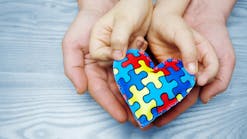It has probably been so since Hippocrates: medical advances have sometimes emerged hand-in-hand with ethical questions that are difficult to answer—but must be answered as the medical advances go into wider clinical use. The ethics does not necessarily keep up the science, and practitioners are stymied. They want to, above all, “first, do no harm,” but it is ambiguous wherein the potential harm might lie. They want to do the right thing—and avoid possible litigation, as well—but it’s not obvious what the right thing is.
Certainly, a good example of that conundrum lies in genomic testing for hereditary disease. Does a clinician have a responsibility to inform a patient’s family members that they may harbor genetic variants that might increase their risk of developing disease? Or do they have the responsibility to not share such information in deference to their patient’s privacy? What if both the individual who undergoes the genomic testing and some of his or her family members are patients of the clinician? It gets complicated fast.
Three quick thoughts: First, many clinicians doubtless would dearly love not to have to face questions like this, which seem to them more like the stuff of philosophy than medicine. But the ostrich option—head in the sand—is not a feasible one. Welcome to modern medicine.
Second, part of what is vexing about this is that either answer—that the clinician must share, or the clinician must not share—can be argued with validity. That’s the most frustrating kind of ethical dilemma.
Third, the situation as it will arise in real life is steeped in issues having to do with relations among family members—which can range from selfless love to bitter hostility or, more often, something in between. It is terrain that clinicians understandably would rather not cross.
I wonder, though, if the answer begins in that last point. “Family doctors” have always had to deal with sensitive issues having to do with the dynamics of the families they serve. Specialists may not treat families as often, but surely they are not unfamiliar with that situation.
So the answer may at least begin with “it depends on the family” including after the death of the patient. It depends on the people who are involved, and should be driven to the extent possible by their input.
That seems to be at least part of an answer provided recently by a project group funded by the National Institutes of Health. To be sure, the consensus guidelines the group recently published were for researchers, focusing on how they should share genomic findings in research on adults and children with other family members, including before and after the death of an individual research participant. But the group’s recommendations seem to be transferable to the clinical environment, where such considerations are already becoming relevant. Among them:
- Researchers should anticipate requests from relatives for participant results and seek participant preferences on sharing and who should serve as the participant’s representative after death.
- Researchers should strive to protect the choices of research participants as to what information is shared and the privacy of participant results.
- Relatives, rather than researchers, generally should be the ones to raise the question of sharing individual results, as researchers generally are obligated to respect the privacy of participant data.
- In unusual cases in which sharing is likely to avert imminent harm, researchers may be ethically justified in reaching out to a participant’s relatives to offer serious and actionable genomic information.
The recommendations were published in the Journal of Law, Medicine & Ethics, at http://onlinelibrary.wiley.com/doi/10.1111/jlme.12288/full. (The Journal requires a $6 “rental” fee from those who wish to read the article in full.)
The first bullet may be the most basic point: ask the patient. But his or her answer is not necessarily the end of the discussion.






